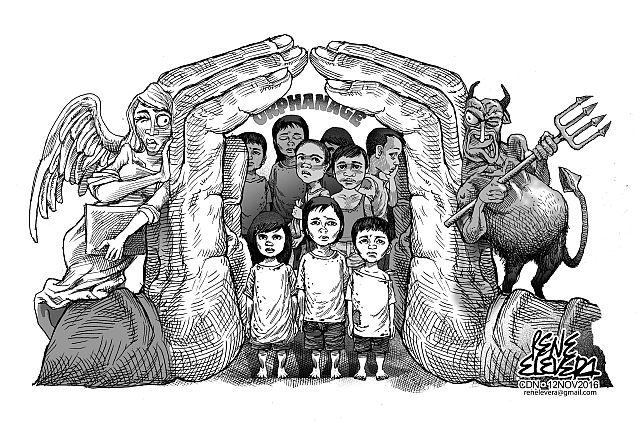
The dismissal of the trafficking charges filed against an American couple who supposedly ran an orphanage without the proper documents may be an eye-opener in terms of how the authorities deal with foreigners who come into contact with and house Filipino minors.
Matthew Dwinells and his Filipino-American wife Dalisay were released from their cell at the National Bureau of Investigation (NBI) regional office after the Tagbilaran City Prosecutor’s Office dismissed the charges against them for lack of evidence.
The prosecutors said they found no evidence of the children, mostly from Cebu, being exploited nor being forced to live in the Street Kids Mission Philippines orphanage run by the couple in Barangay Bool, Tagbilaran City.
A background story run by Cebu Daily News featured the couple’s son based in the US who recounted the couple’s love for and commitment to help abandoned street children after seeing some of them wandering the streets of Manila during a visit to the country.
Far too often, we’ve encountered news reports of foreigners, mostly single, divorced, aging males — derisively called Dirty Old Men or DOM — frequently visiting the Philippines, particularly Cebu, to enjoy the sights and probably land a beautiful girl or two for companionship and something else.
And more often than not, these reports turn out to be true, based on the evidence gathered by police and a task force created by the national government and the provincial government to clamp down on human trafficking.
Cordova town in particular had been a hotbed of cyberpornography with the parents themselves selling nude photos of their children or filming them live simulating sexual acts to foreign pedophiles online to the highest bidder.
Thus, when authorities got wind of the Dwinnells couple running an orphanage that is said to have lacked the documents and permits required for such, they lost no time in arresting them.
While the swift action is laudable, it should serve to remind those, especially foreigners, wishing to run an orphanage to coordinate with the agencies concerned lest they be suspected of running a trafficking syndicate.
Though they may be cleared, it is up to the missionary couple to prove to the authorities that their intentions are altruistic and devoid of any ulterior motives especially at this time when anyone with a laptop and an Internet connection can set up an overnight racket.
They may not be rich, but surely they have the resources to comply with the requirements needed to legitimize their operations. At a time when government spends precious resources in its war on illegal drugs, helping people and groups reach out to the less fortunate is just as important.